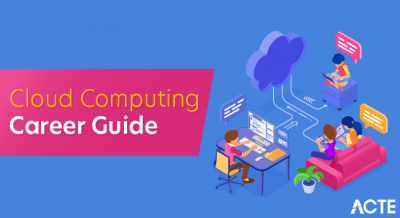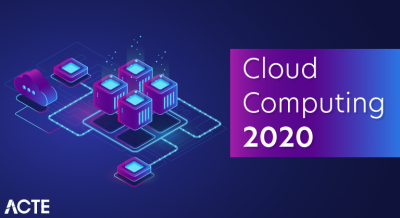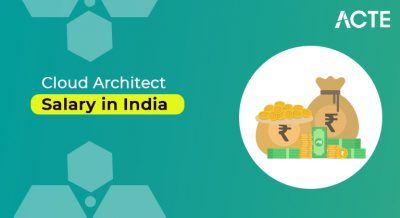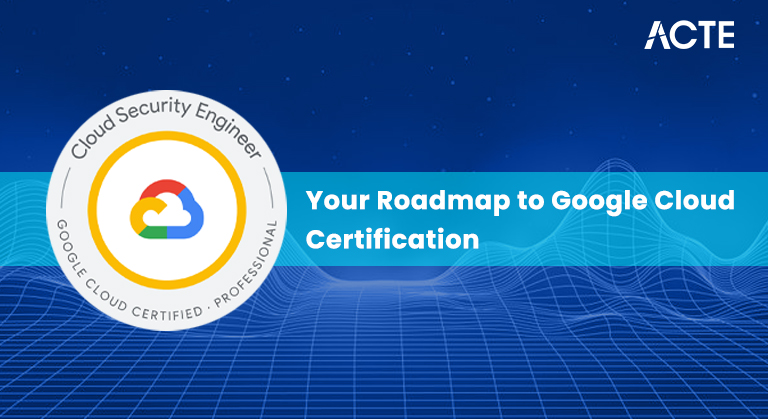
- Introduction to Google Cloud Certification
- Understanding the Google Cloud Certification Path
- Popular Google Cloud Certifications
- Skills and Knowledge Required for Google Cloud Certifications
- How to Prepare for Google Cloud Certification
- Setting a Realistic Study Plan for Certification
- Tips for Passing Your Google Cloud Certification Exam
- Post-Certification: What’s Next?
Introduction to Google Cloud Certification
Google Cloud Certification validates your expertise in using Google Cloud products and services, demonstrating your proficiency in cloud technologies. These certifications are awarded by Google upon successfully passing an exam, which tests your ability to design, implement, and manage applications using Google Cloud tools. With cloud computing rapidly transforming industries, businesses are increasingly adopting Google Cloud to scale operations, enhance security, and foster collaboration. As the demand for skilled cloud professionals grows, obtaining Google Cloud Certification through a Cloud Computing Course offers a competitive advantage in the job market. It helps professionals stand out and qualify for various roles such as cloud engineer, solutions architect, and cloud developer. Google Cloud Certifications are available at different levels, including Associate and Professional, catering to various skill sets and experience levels. Achieving certification not only validates your technical skills but also demonstrates your commitment to staying current with the latest cloud technologies. It is an essential credential for anyone looking to excel in the evolving cloud computing landscape. As more organizations migrate to the cloud, certified professionals are in high demand, making Google Cloud Certification a valuable investment for career advancement in the cloud domain.
Are You Interested in Learning More About Cloud Computing? Sign Up For Our Cloud Computing Online Course Today!
Understanding the Google Cloud Certification Path
Overview of Certification Levels
Google Cloud offers certifications at two primary levels:
- Associate Level: Entry-level certifications that focus on foundational cloud skills.
- Professional Level: Advanced certifications that require a deeper understanding of Google Cloud products and services.
- Associate certifications are suitable for individuals with basic knowledge of cloud computing. The Associate Cloud Engineer certification, for example, is an ideal starting point.
- Professional certifications are intended for experienced professionals who have advanced cloud skills and are responsible for designing and implementing complex cloud solutions.
- For example, the Professional Cloud Architect or Professional Data Engineer certifications are for those who wish to deepen their expertise.
Each level is designed to meet the needs of professionals at different stages of their careers, offering certifications for beginners as well as for more experienced individuals. Whether you’re just starting or looking to advance your expertise, these certifications can also help you implement Future Ready SaaS for Your Business, ensuring your cloud solutions are scalable and aligned with evolving business needs.
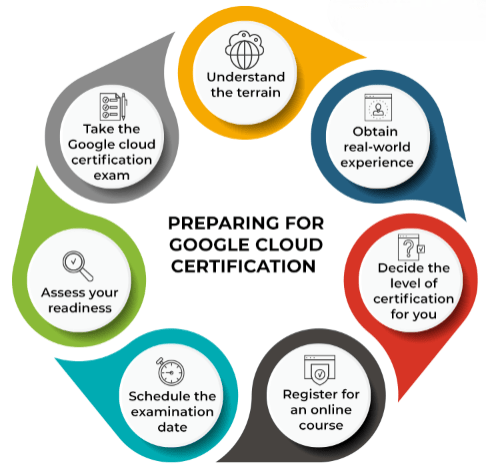
Associate vs. Professional Certifications
Popular Google Cloud Certifications
Here are some of the most popular Google Cloud certifications to pursue:
Google Cloud Associate Cloud Engineer
This is an entry-level certification aimed at individuals looking to begin their journey with Google Cloud. It focuses on the foundational skills required to manage cloud infrastructure, deploy applications, and handle Google Cloud environments.
Google Cloud Professional Cloud Architect
One of the most in-demand certifications, the Professional Cloud Architect certification is designed for professionals who design and manage scalable, secure, and reliable cloud solutions.
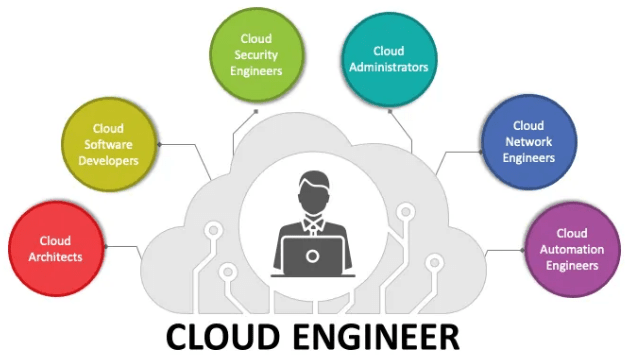
Google Cloud Professional Data Engineer
Aimed at data professionals, this certification focuses on the skills needed to design, build, operationalize, and secure data processing systems. As part of the learning journey, you can explore Cloud Computing Project Ideas that allow you to apply these concepts in real-world scenarios, enhancing your ability to manage and secure data at scale.
Google Cloud Professional Cloud Developer
For developers, this certification tests your ability to build cloud-native applications, manage containerized services, and work with Google Cloud storage options.
Google Cloud Professional Cloud Security Engineer
This certification is perfect for security professionals who specialize in managing and securing Google Cloud environments, ensuring that cloud resources are safe and meet compliance standards.
Want to Earn Your Cloud Computing Certification, Gain Insights From Leading Cloud Computing Experts And Advance Your Career With ACTE’s Cloud Computing Online Course Today!
Skills and Knowledge Required for Google Cloud Certifications
To effectively prepare for any Google Cloud certification, it’s crucial to have a solid understanding of key Google Cloud services. Some of the core services you’ll need to know include Google Compute Engine (GCE), Google Kubernetes Engine (GKE), Google Cloud Storage, Google BigQuery, Google Cloud Pub/Sub, and Google Cloud SQL. Familiarity with these services provides the foundation necessary for managing applications and infrastructure on the Google Cloud Platform (GCP). Additionally, before diving into specific certifications, it’s important to grasp cloud computing fundamentals. A strong understanding of cloud architecture, for example, is essential for comprehending how cloud resources interact, scale effectively, and optimize performance. This foundational knowledge is often covered in a Cloud Computing Course, which equips professionals with the skills needed to design, deploy, and manage scalable cloud solutions. Cloud security is another critical area, as knowing best practices for securing cloud environments is vital. Networking knowledge is also necessary, particularly when it comes to setting up Virtual Private Clouds (VPCs), configuring load balancers, and working with Domain Name System (DNS) settings. For more advanced Google Cloud certifications, especially at the professional level, expertise in security, networking, and machine learning becomes even more critical. Understanding identity management, firewall configurations, and other security protocols will help secure cloud environments. Moreover, knowledge of machine learning platforms like Google Cloud AI and AutoML is key for advanced exams, where these technologies play a significant role in creating scalable and intelligent cloud solutions. Building a strong grasp of these topics ensures you’re well-prepared to handle the complexities of Google Cloud’s offerings.
How to Prepare for Google Cloud Certification
Google Cloud Training Resources
Google Cloud Skills Boost is a platform offering on-demand courses, labs, and practice exams to help you enhance your cloud expertise. The official Google Cloud Documentation is an essential resource for in-depth technical understanding. Additionally, platforms like Coursera and Pluralsight provide online courses created by Google Cloud experts, allowing you to learn from industry professionals and deepen your knowledge of Google Cloud services and tools.
Self-Study vs. Formal Training Programs
While self-study using online resources can be effective, some candidates prefer formal training programs. Google Cloud provides instructor-led training, which offers more hands-on experience and direct interaction with experts. Additionally, for those interested in broader cloud solutions, incorporating Azure API Management into your learning can provide a deeper understanding of cloud service integration and API lifecycle management across multiple platforms. If you’re someone who thrives in a structured environment, this might be a good option.
Google Cloud Labs and Practice Exams
Before taking the exam, it’s essential to gain practical experience with Google Cloud services through hands-on labs. These labs provide real-world scenarios, helping you familiarize yourself with the platform. Additionally, practice exams are a valuable tool for simulating the actual testing environment. They allow you to assess your knowledge, identify any weak areas, and focus on improving them before the real exam, boosting your chances of success.
Considering Pursuing a Master’s Degree in Cloud Computing? Enroll in the Cloud Computing Masters Course Today!
Setting a Realistic Study Plan for Certification
Time Commitment and Scheduling
The time required to prepare for a certification exam depends on your current knowledge and experience with Google Cloud. On average, candidates spend between 2 to 6 months preparing for a certification exam. It’s essential to set aside specific time each week for studying and hands-on practice.
Breaking Down Study Topics
Start by breaking down the exam objectives and focusing on one topic at a time. Make sure to cover key areas like cloud infrastructure, security, and storage, depending on your certification. To further enhance your preparation, familiarize yourself with Google Cloud Platform services and tools, as they are integral to the certification and will help you apply your knowledge in real-world cloud environments. Create a study schedule and stick to it, making sure to allocate time for both theoretical learning and practical application.
Balancing Study with Work and Other Commitments
Balancing work and studies requires setting realistic expectations about the time you can dedicate. To make studying more manageable, break your sessions into smaller chunks, such as 30-minute or 1-hour blocks. This approach prevents feeling overwhelmed and helps you stay focused. It also allows for regular breaks, maintaining productivity and reducing burnout. By organizing your time effectively, you can maintain a steady study routine while managing other responsibilities.
Tips for Passing Your Google Cloud Certification Exam
When preparing for a Google Cloud certification exam, adopting effective exam strategies is crucial. One key approach is to read the questions carefully, as Google Cloud exams often present scenario-based questions. Take the time to fully understand the scenario and question before selecting an answer, as this ensures you’re responding to what’s being asked. Additionally, focus on mastering core Google Cloud services such as Compute Engine, Kubernetes, and BigQuery, as these are widely used and frequently tested. To maximize your chances of success, avoid common mistakes during your preparation. One critical mistake is overlooking practice exams.Practice exams are invaluable in familiarizing yourself with the exam format and identifying areas where your knowledge may need improvement. In addition to preparing for Google Cloud certifications, taking practice exams related to other platforms, such as Career in Azure Cloud, can broaden your skill set and open up new opportunities in the rapidly growing cloud industry. Similarly, neglecting hands-on practice can hinder your performance. Google Cloud exams often require practical experience, so be sure to spend time working directly in the Google Cloud Console to reinforce your theoretical knowledge and gain real-world experience. Remember that certifications are not just about memorizing facts; they emphasize applying knowledge in practical scenarios. Understanding how to use Google Cloud services to solve real-world challenges is just as important as knowing theoretical concepts. This hands-on experience will prepare you to tackle complex problems and ensure that you can use Google Cloud technologies effectively in your professional role. By combining both theoretical learning and practical application, you’ll be well-equipped to excel in the certification exam and succeed in cloud-related roles.
Preparing for Cloud Computing Job Interviews? Have a Look at Our Blog on Cloud Computing Interview Questions & Answer To Ace Your Interview!
Post-Certification: What’s Next?
Once you’ve earned your Google Cloud certification, it’s time to leverage it to advance your career. Start by prominently highlighting your certification on your resume and LinkedIn profile, as many organizations are actively seeking certified professionals for cloud-related roles. Having a Google Cloud certification showcases your expertise and makes you stand out in a competitive job market. Google Cloud certifications are valid for two years, so it’s important to keep them up to date. After your certification expires, you will need to renew it by passing the relevant exam to maintain your credentials and stay updated with the latest cloud technologies and best practices. Many Cloud Computing Course offer refresher modules or resources to help you prepare for the renewal exam and ensure your skills remain current. To ensure you remain current in the fast-evolving cloud landscape, continue learning about new Google Cloud services, features, and best practices. Once you’ve achieved an associate or professional certification, consider expanding your skill set by pursuing advanced certifications. Specializations such as Google Cloud Machine Learning Engineer or Google Cloud Security Engineer can help you deepen your expertise in specific areas of cloud technology. By continuing to invest in your education and certifications, you’ll be well-positioned for ongoing career growth and leadership opportunities in the cloud computing field.


